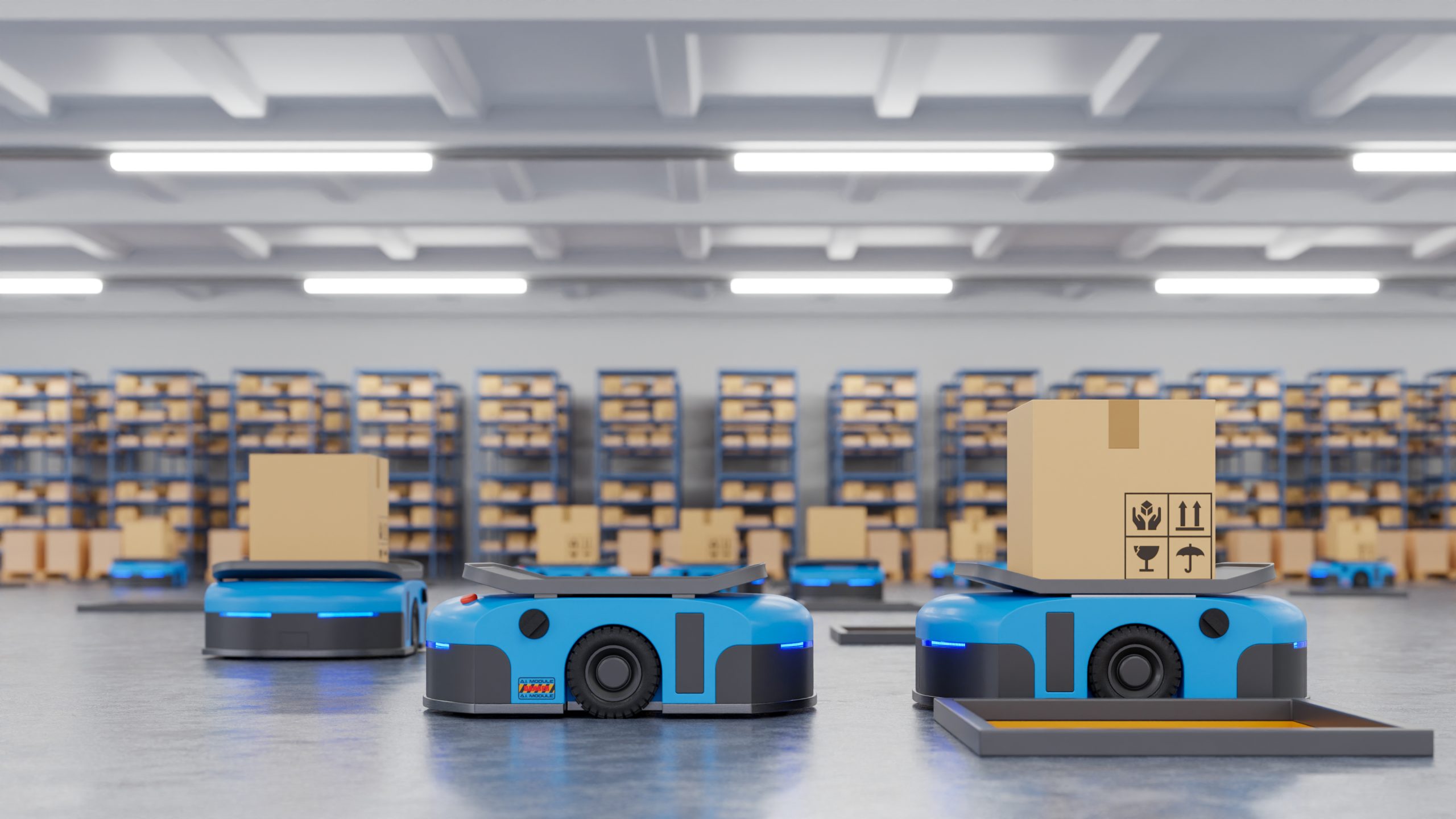In today’s fast-paced business environment, small and medium-sized businesses (SMBs) often reach a critical juncture where their basic accounting software can no longer support their growing operational needs. In this exclusive Q&A, Jaclyn Ng, Senior Product Marketing Manager at Acumatica, delves into the key indicators that signal it’s time for SMBs to upgrade from entry-level systems like QuickBooks. Jaclyn highlights the hidden costs, inefficiencies, and security risks of sticking with outdated software, and how modern ERP solutions can offer the scalability, flexibility, and efficiency SMBs need to thrive. She also shares valuable insights on overcoming the challenges of transitioning to ERP and how cloud-based platforms are future-proofing businesses for sustained growth and market adaptability.

Explore how making the switch to a robust ERP system can unlock new opportunities and streamline operations, setting your business up for long-term success.
- What are the most common signs that an SMB has outgrown basic accounting software like QuickBooks? How can businesses identify when it’s time to upgrade?
- Many growing SMBs are finding that their starter accounting software is not able to generate detailed, real-time reports. They also discover that they’re limited in managing multiple entities and that their systems can’t efficiently handle increased transaction volumes. These businesses may also notice that the software is unable to provide the insights needed for strategic decision-making and that consolidating data across entities is time-consuming and error-prone. These are tell-tale signs that it’s time to consider a more comprehensive solution to support the organization’s growth ambitions.
- Can you elaborate on the hidden costs associated with sticking to outdated accounting systems? What are some of the risks, particularly regarding data security and operational inefficiencies?
- What comes as a surprise to some businesses is the discovery that accounting software costs don’t remain static. Growing companies need to expand the number of users accessing this software. They then need to add costly third-party applications for expanding requirements like advanced financial reports, project accounting, payroll, inventory management, and customer relationship management (CRM). Additionally, the time-consuming manual processes needed to compensate for the system’s limitations can lead to higher labor costs, not to mention the costs of inefficiencies and errors.
- How do legacy accounting systems expose SMBs to potential security breaches? Can you provide examples of the types of vulnerabilities these systems might have?
- Basic systems often rely on disconnected applications and a multitude of disparate spreadsheets, creating data silos that increase the risk of data breaches and loss. This can lead to sensitive financial and customer information being compromised. Limited user licenses can sometimes force bad behaviors like team members sharing login credentials, leading to unauthorized access and data breaches.
- In what ways do outdated accounting systems hinder business growth? What specific opportunities might SMBs miss out on by not upgrading to more advanced solutions?
- Relying on outdated systems or putting off transforming operations with modern technology not only limits the flexibility and agility you need to respond to changing market conditions but also hinders growth potential by limiting scalability, data visibility, and operational efficiency. These systems prevent businesses from generating real-time insights necessary for strategic decision-making and delay transaction processing. As a result, small businesses might miss out on opportunities to expand into new markets, optimize their supply chains, expand their business portfolio, or respond quickly to customer demands. Without a modern system, they may also struggle to implement digital transformation initiatives essential for staying competitive in today’s digital economy.
- What are the operational inefficiencies that arise from relying on entry-level accounting software? How do these inefficiencies affect day-to-day business operations and long-term strategic goals?
- These systems are fine when starting a business but eventually lead to a host of inefficiencies. Here are three examples: delayed transaction processing, manual data entry, and time-consuming reporting processes. These inefficiencies can result in cash flow management issues and missed deadlines, jeopardizing customer satisfaction and profitability. Over the long term, these systems can hinder a business’s ability to scale effectively, limit market responsiveness, and compromise overall competitiveness by wasting resources on non-strategic activities rather than on growth and innovation.
- How can transitioning to a modern ERP system address the challenges associated with legacy accounting software? What key benefits can SMBs expect from making this switch?
- Modern ERP systems have changed the game for what is possible for SMBs. A comprehensive solution built on an open and powerful cloud platform can integrate financial, operational, and customer data into a single, unified system. Users can expect benefits such as improved data visibility, real-time reporting, enhanced security features, and the ability to scale seamlessly. Additionally, without the limitations of local data servers, the speed of running the software is enhanced, enabling team members to save time on daily tasks. The transition to cloud-based solutions also allows for automation of routine tasks, reducing manual errors and freeing up time for strategic activities.
- How does a modern ERP system like Acumatica provide the scalability and flexibility that growing SMBs need? What features are particularly beneficial for businesses looking to expand?
- A modern ERP system like Acumatica provides scalability and flexibility through its cloud-based architecture, allowing businesses to add new users, locations, and functionalities without significant disruptions. Acumatica’s features, such as consumption-based licensing, customizable dashboards, built-in CRM, inventory management, integrated financial and operational modules, and robust reporting tools, support growth by providing comprehensive visibility and control over business processes. The system’s open Application Programming Interface (API) enables seamless integration with other tools and platforms like Shopify, Avalara, and industry-specific applications like ProCore, ProEst, and CFMABenchmarker Connectors, ensuring businesses can continue to adapt and innovate without being constrained by their technology.
- Many SMBs are hesitant to move away from systems they’re familiar with. What advice would you give to business leaders who are reluctant to transition from their current software?
- For business leaders hesitant to make the switch, it’s important to focus on the long-term benefits of upgrading to a robust ERP system. Start by assessing your current software’s limitations to identify the specific needs a new solution must address. Remember that while there will be an upfront investment, the long-term gains in efficiency, scalability, and competitive advantage will far outweigh the initial challenges. It’s better to make the move now than later—if you’re already running into issues with your basic accounting software, transitioning to an ERP system designed for small to medium-sized businesses will solve those problems and future-proof your business as it grows, so you won’t need to switch systems again.
- I encourage these businesses to read the inspiring stories of many of our customers who have graduated from basic accounting software to Acumatica. They all have one thing in common – they avoided the cost of doing nothing or remaining with the status quo. As Acumatica customer Sendy Stern, Chief Technology Officer at Fabuwood, shared: “Most people told us it would take about nine months to go live from when you start the process. It was amazing. Within five months, we were live. [Acumatica] has a great platform and a great system that helped us go so fast.” This is a testament to how the right ERP system can streamline the transition process, making it faster and more seamless than many anticipate.
- How does adopting a modern ERP system help future-proof a business, ensuring it can adapt to changes and challenges in the market? What role does cloud technology play in this process?
- A big advantage advanced ERP systems offer that basic systems can’t match are the tools to adapt to changing market conditions and customer demands. A cloud-based ERP system allows businesses to scale up or down quickly, integrate new technologies and access data remotely, facilitating agile decision-making. Cloud technology also ensures automatic updates and upgrades, keeping the business up-to-date with the latest features and security measures. This adaptability enables businesses to respond proactively to new opportunities and challenges, maintaining competitiveness and growth over time. For instance, after implementing Acumatica, DiamondBack Truck Covers saved countless hours previously spent on manual data entry, gaining visibility into business performance, mitigating the risk of vulnerable data, and enabling growth.











